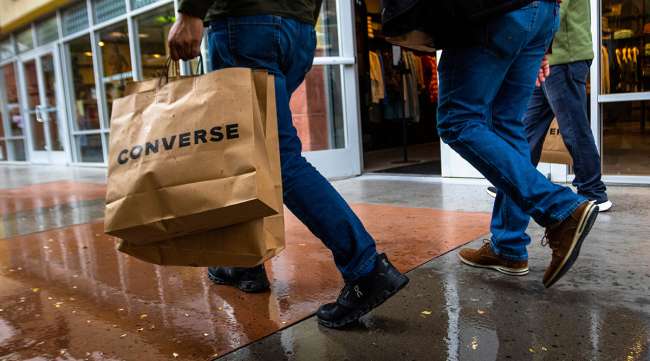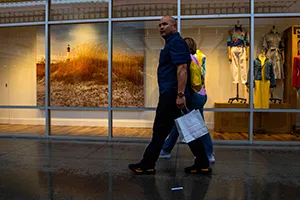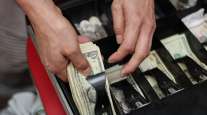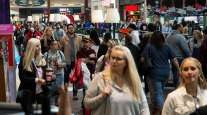Associated Press
Retail Sales Slip 0.4% in February After January’s Burst

[Stay on top of transportation news: Get TTNews in your inbox.]
NEW YORK — America’s consumers trimmed their spending in February after a buying burst in January, underscoring the volatility of the economic environment.
The government said March 15 that retail sales slipped 0.4% after jumping a revised 3.2% in January, helped by an increase in auto sales. Retail sales were down in November and December, the critical holiday period.
The February retail sales figure was weighed down by a 1.8% drop in auto sales as well as declines at restaurants and stores selling furniture and clothing. Excluding autos, sales slipped 0.1% from January, according to the Commerce Department.
Sales at furniture stores fell 2.5%, while business at restaurants declined 2.2% in February from January. Sales at department stores slid 4%. But shoppers spent more online and at electronics stores, health and beauty stores and food retailers, according to the report.
Shoppers remain relatively resilient, getting a boost from a strong job market. America’s employers added a solid 311,000 jobs in February, fewer than January’s huge gain. But they are grappling with still-high prices on almost everything.
The government reported on March 14 that consumer price increases eased slightly from January to February but still pointed to an elevated inflation rate that’s presenting a challenge for the Federal Reserve at a delicate moment for the financial system. Prices increased 0.4% last month, just below January’s 0.5% rise. Yet excluding volatile food and energy costs, so-called core prices rose 0.5% in February, slightly above January’s 0.4% gain.

Steve Slesinski of Dana and Trent Broberg of Acertus pop the EV hood and reveal new, easier ways to repair, prepare and invest in electric trucks. Hear the program above and at RoadSigns.TTNews.com.
With the collapse of two large banks since March 10 fueling anxiety about other regional banks, the Fed, for now, may concentrate more on boosting confidence in the financial system than on its long-term drive to tame inflation.
Still, it remains to be seen whether news coverage of bank failures and stock market gyrations will hurt consumer sentiment this month, writes Capital Economics’ Deputy Chief U.S Economist Andrew Hunter in a report issued March 15.
The first reading will come with the University of Michigan consumer confidence survey released March 17. The bigger impact on consumers will probably come through a further tightening in credit conditions, economists said.
“As the labor market softens in response to restrictive monetary policy, consumer attitudes are likely to turn more cautious over time,” said Rubeela Farooqi, chief U.S. economist at High Frequency Economics, a forecasting firm.

Shoppers pass a window display in Las Vegas. (Ty O'Neil/Associated Press)
The retail sales report comes as many retailers of all types including Walmart, Target, Home Depot and Macy’s issued already cautious annual outlooks in February that pointed to a slowdown in consumer spending, particularly in clothing and furniture, as shoppers contend with higher prices as well as rising interest rates that boost borrowing costs.
“While the supply chain issues have largely abated, prices are still high and there is considerable pressure on the consumer,” said Walmart’s Chief Financial Officer John David Rainey on the call in February.
Claire Tassin, retail and e-commerce analyst at Morning Consult, a survey research technology company, noted the longer-term trend shows that retail growth is bolstered by inflation, and shoppers are pulling back on discretionary spending with the strongest impacts on department stores and home furnishings retailers.
“Essentials take priority in consumers’ budgets,” she added.
The retail report released March 15 covers only about a third of overall consumer spending and doesn’t include services such as hotel stays and plane tickets, which have rebounded as the threat of COVID-19 eases.
— Chris Rugaber in Washington contributed to this report.
Want more news? Listen to today's daily briefing below or go here for more info:




